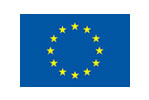Orchyd project
Geothermal energy could be cheaper to access, thanks to a new drilling technology !

The ORCHYD project, funded by the European Union’s Horizon 2020 programme, will develop a new drilling technique whose implementation will combine existing technologies to help reduce the operational time for geothermal exploration and thus the total cost to utilise the geothermal energy.
This project is led by researchers from ARMINES/MINES-ParisTech in France. Their partners include Imperial College London (UK), SINTEF (Norway), University of Piraeus (Greece), China University of Petroleum (East-China) and a drilling company Drillstar (France).
Geothermal energy harnesses the heat of rocks to convert water to steam and supply an uninterrupted power as opposed to wind and solar energy sources. This makes geothermal energy a leading candidate for a carbon neutral, efficient and a reliable source of renewable energy supply across the globe. However, the current drilling methods to reach the rocks at a depth of more than 4 Km are slow and inefficient – making geothermal sources supply less than 2% to the global energy share.
Now, a new €4 million research and innovation action grant from the EU, for a period of three years, will help researchers to evaluate a non-conventional, fully fluid-driven drilling technology. This approach combines a high pressure water jet system with an advanced fluid-powered down-hole hammer system, that will help cut the rocks at greater depths in an efficient and safe manner.
Using the envisioned drilling approach, researchers of the ORCHYD project aim to increase the unit drilling rate by four times than the average rate currently possible – drastically reducing the drilling costs by unto 65%. This first-of-its-kind drilling approach, combining two established rock cutting technologies, will make the utilization of geothermal energy cheaper and more widely available – a facilitator in the energy transition to tackle the global climate crisis.
Project leader ARMINES/MINES-ParisTech will utilize their experimental facilities to prove and qualify the performances of the new technology, through pilot tests under realistic drilling conditions in terms of down-hole regimes of pressures, temperatures and rock formations. The data collected will be utilized by the partners – mainly Imperial College London and SINTEF – to understand the rock cutting process and to optimize the physical parameters to achieve the projected 4X increase in the penetration speed. China University of Petroleum is developing the down-hole pressure intensifier, the industrial partner, Drillstar, bridges the gap between the industry and the academia, by developing the first prototypes of the new technology. A key segment overseeing the impact of geothermal energy on the energy security and in society overall, is carried out by University of Piraeus.
A continuous feedback loop setup in the consortium between theoretical and experimental work; academia and industry, is one of the major strengths of this project. The Scientific Coordinators Prof. Hedi Sellami and Dr. Laurent Gerbaud said: “the fundamental innovation of the project lies both in the development of a new principle to ‘free’ the deep rock from existing concentrated stress in the immediate vicinity of the drilling tool, allowing for an easier rock-cutting action”
A new functioning prototype is expected to be build by 2024 which will be first tested on test benches at the ARMINES laboratory before field trials.
This project has received funding from the European Union’s Horizon 2020 research and innovation programme under the grant agreement No. 101006752.

